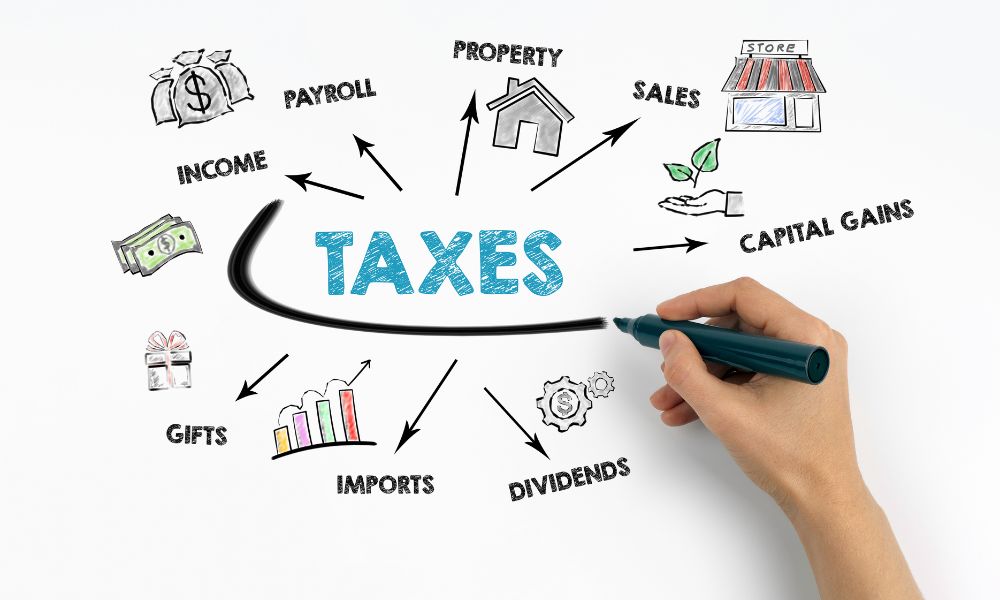Tax Planning for Businesses: Key Strategies for Saving Money in today’s fast-paced business environment, staying financially agile is crucial. One of the smartest ways to boost your bottom line? Mastering Tax Planning for Businesses. Beyond just compliance, effective tax planning empowers companies to make confident decisions, improve cash flow, and position themselves for long-term success.
Let’s dive into the most impactful strategies every business should consider to reduce tax liability and save money—all year round.

The Value of Being Proactive
Rather than waiting until tax season hits like a freight train, proactive Tax Planning for Businesses ensures you’re steering the financial ship with purpose. By making informed decisions throughout the year—like how to structure purchases, investments, and compensation—you unlock serious savings.
When taxes become part of your business strategy, not just a filing requirement, everything changes for the better.
1. Choose the Right Business Structure
Your legal structure influences how much tax you’ll pay and how you pay it. Each setup offers different advantages when it comes to Tax Planning for Businesses.
- Sole proprietorships are easy to form but may result in higher self-employment taxes.
- LLCs provide flexible tax treatment and liability protection.
- S corporations allow profits and losses to pass through to shareholders, avoiding double taxation.
- C corporations can retain earnings and offer fringe benefits, but they’re subject to corporate tax.
The structure that’s right for you depends on your income, future goals, and growth strategy. It’s worth a deep dive.
2. Maximize Deductions and Credits
Why pay more than you need to? Businesses can claim a variety of deductions that directly reduce taxable income. Some popular options include:
- Office rent and utilities
- Business travel expenses
- Employee wages and benefits
- Marketing and advertising costs
- Equipment and software
On the flip side, tax credits are even better—they’re a dollar-for-dollar reduction in your tax bill. Consider the Research & Development (R&D) Tax Credit, the Work Opportunity Tax Credit, or credits for energy efficiency upgrades.
Smart use of deductions and credits is at the heart of effective Tax Planning for Businesses.
3. Time Your Income and Expenses
Timing is everything, especially when it comes to taxes.
If you use the cash method of accounting, you can choose when to recognize income and expenses. For example, deferring income to the next tax year or accelerating purchases into the current year can reduce your taxable income.
By thoughtfully managing when income is received and costs are incurred, you can smooth out your tax obligations and better align with your financial goals.
4. Use Depreciation to Your Advantage
Buying equipment or property for your business? Don’t overlook depreciation. You may be able to deduct the entire cost upfront using bonus depreciation or Section 179.
This is a fantastic strategy in Tax Planning for Businesses, especially when cash flow is tight and reducing taxable income is a priority. A single big purchase today could save you thousands on your tax return.
5. Offer Retirement Plans and Benefits
Helping your employees prepare for the future can save your business money today.
By setting up a 401(k), SEP IRA, or SIMPLE IRA, employers can deduct contributions, reduce payroll taxes, and improve employee retention. Health Savings Accounts (HSAs) and Flexible Spending Accounts (FSAs) also offer tax advantages to both the employer and employees.
Benefits like these are more than perks—they’re strategic tax tools that align with smart Tax Planning for Businesses.
6. Understand State and Local Tax Rules
Federal taxes are only part of the equation. Every state (and sometimes even cities) has its own tax requirements. Depending on where you operate, you might owe income tax, sales tax, franchise tax, or property tax.
Expanding across state lines? Beware of “nexus” rules—once your business has a presence in another state, you could be required to file taxes there too.
Local taxes often fly under the radar, but keeping them in mind is essential for complete Tax Planning for Businesses.
7. Work with a Knowledgeable Tax Advisor
Even if you’re financially savvy, partnering with a CPA or tax expert can be a game-changer. They can:
- Find deductions you may overlook
- Ensure accurate and timely filings
- Represent you in case of audits
- Help you forecast and budget for taxes
- Strategize big moves like asset purchases or business expansion
A great tax advisor doesn’t just crunch numbers—they become a trusted financial guide.
8. Keep Impeccable Records
Good tax planning relies on good bookkeeping. To claim deductions or defend your positions during an audit, you need detailed records.
Save every receipt, track mileage, document employee benefits, and categorize expenses correctly. Use software like QuickBooks or Xero, and make it a monthly habit to reconcile your books.
Organized records make Tax Planning for Businesses less stressful and more effective.
9. Schedule Quarterly Tax Reviews
Waiting until December to review your tax position is like cramming for a final exam—risky and stressful.
Instead, build a schedule for quarterly tax reviews. This allows you to:
- Project income and expenses
- Adjust estimated payments
- Implement strategies before year-end
- Prevent surprises at tax time
These check-ins are the secret weapon of businesses that stay ahead of the curve.
10. Make Charitable Contributions
Giving back feels good—and it’s good for business. Donating cash, inventory, or services to qualified nonprofits can reduce your taxable income.
Just make sure your contributions are properly documented, and the organization meets IRS requirements. Charitable giving can also boost your brand reputation while enhancing Tax Planning for Businesses.
11. Consider International Tax Rules
For businesses operating overseas or selling across borders, international tax laws come into play.
You’ll need to think about:
- Transfer pricing
- Foreign tax credits
- Withholding rules
- Currency conversions
- U.S. reporting for foreign bank accounts
Global operations mean complex compliance, but also new opportunities for optimization.
When done right, international Tax Planning for Businesses can unlock expansion while minimizing tax exposure.
12. Plan Your Exit Strategy Early
Whether you plan to retire, sell the business, or pass it to family, your exit strategy will have significant tax implications.
Capital gains taxes, estate planning, gifting, and valuation all come into play. By thinking years ahead, you can reduce taxes on the sale and ensure a smooth transition.
A well-designed exit plan is not just good business—it’s tax-smart too.
13. Prepare for Potential Audits
No one enjoys the thought of an IRS audit, but preparation is your best defense.
Keep thorough records, document your deductions, and maintain consistency in your filings. If your business is selected for review, having everything in order will make the process far less stressful.
Strong audit readiness is an often-overlooked part of Tax Planning for Businesses, but it can save you time, money, and anxiety down the line.
14. Use Tax Loss Harvesting
If your business holds investments, tax loss harvesting could be a helpful tactic.
This involves selling off assets that have declined in value to offset capital gains elsewhere. It’s a savvy way to reduce taxable income and clean up your investment portfolio in the process.
Used strategically, this approach adds a layer of sophistication to your overall tax strategy.
15. Stay Updated on Tax Law Changes
Tax laws don’t stay still. New legislation, like changes in tax rates, new credits, or stimulus provisions, can alter your planning drastically.
To stay informed, subscribe to updates from:
- The IRS
- Your accountant
- Professional business networks
By staying in the know, you can pivot quickly and keep your Tax Planning for Businesses on track, no matter what comes your way.
Final Thoughts
Taxes might not be the most glamorous part of running a business—but they’re one of the most important. By being proactive, strategic, and detail-oriented, you can turn your tax approach into a competitive advantage.
Remember: Tax Planning for Businesses isn’t just about saving money—it’s about making smarter decisions that fuel long-term success.
Whether you’re launching your first startup or managing a thriving enterprise, thoughtful tax planning helps you keep more of what you earn, reinvest in growth, and build a business that stands the test of time.




